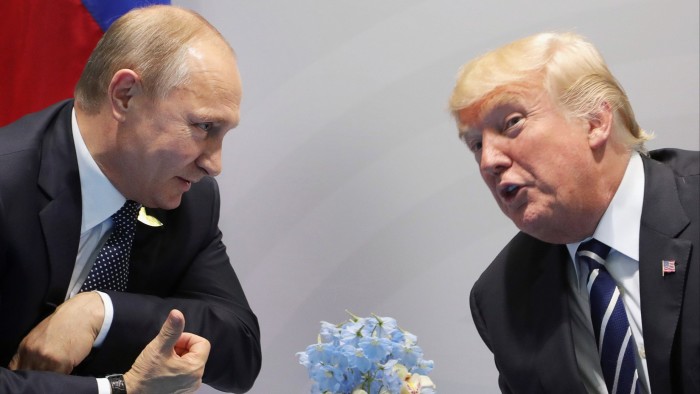
Unlock the White House Watch newsletter for free
Your guide to what the 2024 US election means for Washington and the world
The writer is a lecturer at Stanford University and former deputy secretary-general of Nato
On the campaign trail, Donald Trump famously said that he would end the war in Ukraine in 24 hours. In September, his vice president-elect, JD Vance, began to put out ideas of what that might mean: partition of Ukraine, with the eastern portions of the country falling to Russia and Nato membership out of the question. Other Republican strategists have voiced similar notions, although they have been a little softer on Nato: membership for Ukraine would be put off indefinitely.
These ideas run directly counter to what Ukraine’s president, Volodymyr Zelenskyy, has been pushing in his own peace plan, but they would no doubt be palatable to Russian President Vladimir Putin. They are much more in line with his own proposals for ending the war.
It is, nonetheless, crucial for Trump to think hard about the dynamics of the negotiation. Putin has been wanting to mete out a crushing defeat to Ukraine and, with it, to its partners in Nato and particularly to the US. Like many Russian leaders from time immemorial, Putin prefers the zero-sum game: I win, you lose. There is no such thing as a win-win solution — winner takes all.
But it doesn’t have to be that way. Trump has every opportunity to alter the dynamics, because Putin has strong motives to nurture his relationship with the US. The Russian president wants to get back on the world stage, arm in arm with the American one — something that would improve his position both domestically and internationally. And he wants relief from the crushing sanctions that have damaged the Russian economy, even if they did not destroy it.
Thus, Trump can demand concessions. And, if they are cleverly crafted, they won’t be impossible for Putin to give. Three come to mind.
First, even if Ukraine’s territorial reality does change, the US should propose language for a ceasefire agreement similar to that used to describe West Germany’s status after the second world war. The territorial integrity of Germany was upheld, and the separation of the Federal Republic of Germany from its eastern provinces was not considered permanent. This precedent is a good one to recollect as we celebrate the 35th anniversary of German reunification. Although partition can last for a long time, it should never be accepted as permanent. Territorial integrity and sovereignty, enshrined in the UN Charter, are the guiding principles.
Second, rather than accepting that Nato membership will be put off indefinitely, the US should propose that Nato accession will be worked out over an indefinite period. Simultaneously, the US and its Nato allies should invite Ukraine to begin accession talks, conducting them in parallel with the accession talks with the EU, which began in June 2024. Nobody can predict when these talks will end, because the requirements of both the EU and Nato will be complicated for Ukraine to fulfil. Nevertheless, it will clearly be on the path to EU and Nato membership, as both institutions have pledged. If Ukraine needs some assurance against the goalposts moving, then a target date can be set for final results — perhaps 20 years hence.
Why do I think such a move might be palatable to Putin? Well, he accepted the onset of EU accession talks largely without complaint. Launching Nato accession talks in parallel to the EU ones would put each negotiation into the shadow of the other. These processes are always slow, so Putin can be assured that there will be no sudden surprises.
Third, as a condition for coming to the table, the US can say that Russia must be ready to rejoin talks on nuclear arms control and strategic stability. Putin has suspended these until such time as the US and Nato allies give up on assistance to Ukraine. Nato and the US must insist on continuing to aid Ukraine, but it’s high time to get back to talking bilaterally about maintaining nuclear stability and controls on nuclear weapons.
Although Putin may not like dropping his conditionality, he clearly has an interest in doing something nice for Trump. Resuming nuclear talks would cost him little in terms of domestic capital and could, once again, return him to the world stage. As for Trump, two big deals — peace in Ukraine and a new nuclear agreement — would cement his reputation as the ultimate dealmaker — indeed, as the ultimate peacemaker. He would achieve goals that had eluded his predecessor.
The important thing is that Trump makes sure he doesn’t come out the loser during negotiations with Putin over Ukraine. He must know that Putin will be ready to make some concessions, carefully crafted to save face — his, Trump’s and Zelenskyy’s too. Nobody needs to emerge from this war having suffered a crushing defeat.

